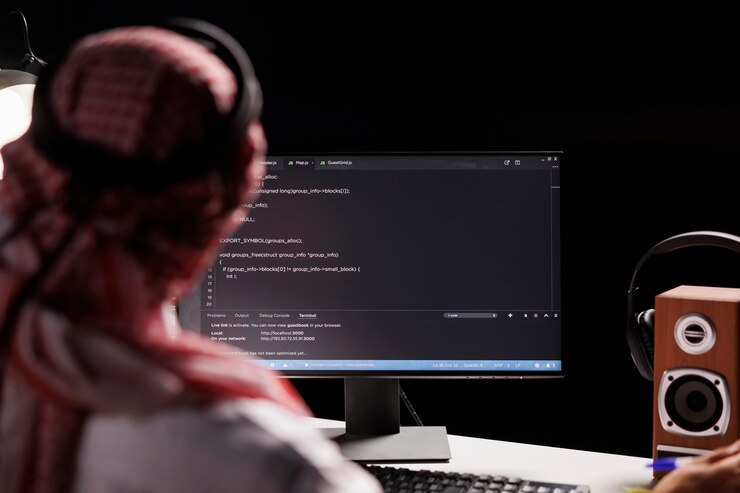
Introduction:
Python has rapidly become one of the most popular programming languages, widely recognized for its simplicity and versatility. Whether you are a complete beginner or an experienced coder, Python provides an accessible entry point into the world of programming. In this guide, we will explore why Python is perfect for everyone, how to get started, and essential tips for mastering the basics.
What is Python and Why is It So Popular?
Guido van Rossum created Python in 1991, making it one of the most beginner-friendly languages. Its design philosophy focuses on code readability, which makes it easier to learn compared to other languages like C++ or Java. For beginners, Python is often considered the best choice due to its clean and straightforward syntax.
Key Reasons for Python’s Popularity:
- Simplicity: Python’s syntax is easy to understand, even for beginners with no prior coding experience.
- Versatility: Python serves multiple purposes, including web development, data science, automation, and artificial intelligence (AI).
- Huge Community Support: Since Python is one of the most widely used languages, it boasts a massive community contributing to libraries, documentation, and troubleshooting resources.
How to Get Started with Python
Getting started with Python is straightforward. All you need is a computer and an internet connection. Follow these steps to begin your programming journey:
Write Your First Python Program Typically, most beginners start with a “Hello, World!” program. You can write this in Python using just one line of code:
Download and Install Python First, you should download Python from its official website, ensuring you get the latest version. Python comes with IDLE (Integrated Development and Learning Environment), which helps you write and test your code easily.
Set Up a Code Editor While IDLE is great for beginners, advanced editors like VSCode or PyCharm offer a more robust coding experience. Additionally, these editors include features like syntax highlighting, auto-completion, and debugging tools.
print("Hello, World!")
- This simple line introduces the
print()function, which displays output to the screen. - Understanding Basic Syntax and Structure Python’s syntax is clear and consistent. Below are a few fundamental concepts to grasp:
- Variables and Data Types: In Python, you don’t need to declare a variable’s type. For example:
age = 25 # An integer
name = "John" # A string
Conditional Statements: Python uses if, else, and elif for making decisions based on conditions.
if age > 18:
print("You are an adult")
else:
print("You are not an adult")
Loops: Python provides for and while loops for iteration.
for i in range(5):
print(i)
- Why Python is Perfect for Everybody
- Python’s accessibility makes it an excellent language for individuals from various backgrounds, not just computer science. Whether you’re building websites, automating tasks, or analyzing data, Python offers the tools necessary for the job. For instance, its extensive libraries like Django for web development and Pandas for data manipulation make it adaptable to different needs.
- Key Concepts in Python for Beginners
- Variables and Data Types Variables in Python hold data, and you don’t need to specify their type explicitly, as Python determines it from the assigned value.
- Functions Functions help you write modular and reusable code. A basic Python function looks like this:
def greet(name):
print(f"Hello, {name}")
This function accepts an argument and prints a greeting.
Lists and Loops Python supports working with collections using lists. You can iterate through lists using loops:
fruits = ["apple", "banana", "cherry"]
for fruit in fruits:
print(fruit)
4. Object-Oriented Programming (OOP) Basics
Even as a beginner, it’s good to have an understanding of OOP concepts. Python supports classes and objects, which allow you to structure your code more efficiently.
class Dog:
def __init__(self, name, breed):
self.name = name
self.breed = breed
def bark(self):
print(f"{self.name} says woof!")
dog = Dog("Buddy", "Golden Retriever")
dog.bark()
Tips for Learning Python Quickly
- Practice Consistently: Mastering Python (or any programming language) requires consistent practice. Regularly work on small projects and tackle coding challenges.
- Join Online Communities: Platforms like Stack Overflow, GitHub, and Reddit have active Python communities where you can ask questions and learn from others.
- Explore Python Libraries: Python boasts an extensive range of libraries. Start with popular ones like NumPy (for numerical computing) and Flask (for web development).
- Take Online Courses: Several platforms offer Python courses, including Coursera, edX, and Udemy, which are excellent for structured learning.
Final Thoughts: Why Python is Ideal for Programming Beginners
Python is the ideal programming language for beginners because it lowers the barrier to entry. Its simplicity, coupled with powerful libraries, means that you can progress from beginner to expert in no time. Additionally, Python’s versatility allows you to explore various fields, whether you want to be a web developer, data scientist, or AI specialist. Therefore, if you’re new to programming, Python is undoubtedly the best language to start with.
Conclusion: Get Started with Python Today
With its ease of use and broad range of applications, Python is perfect for everyone—whether you’re just beginning or looking to enhance your skills. Therefore, don’t hesitate to dive into Python today, and you’ll soon discover how it can open up numerous opportunities in the tech world.